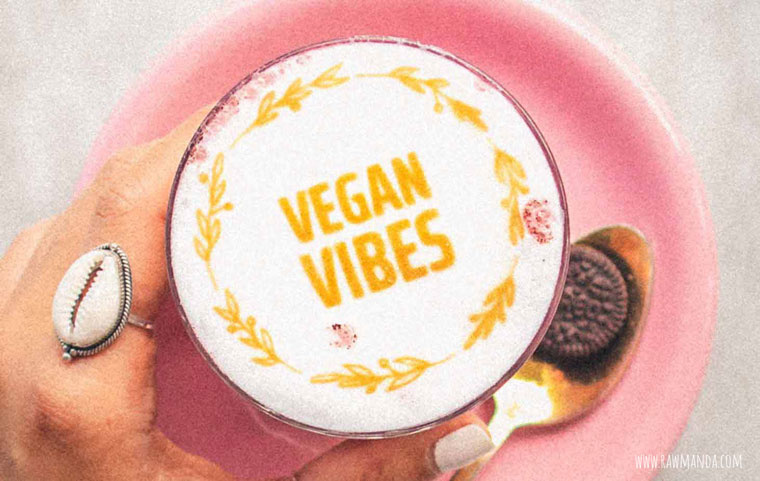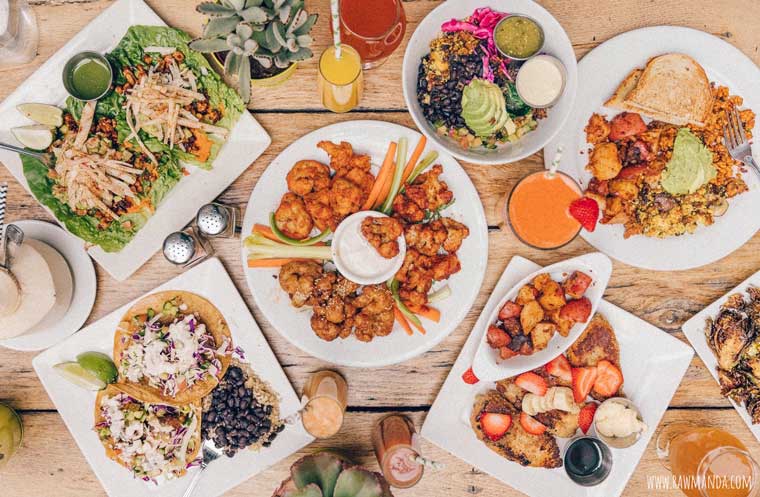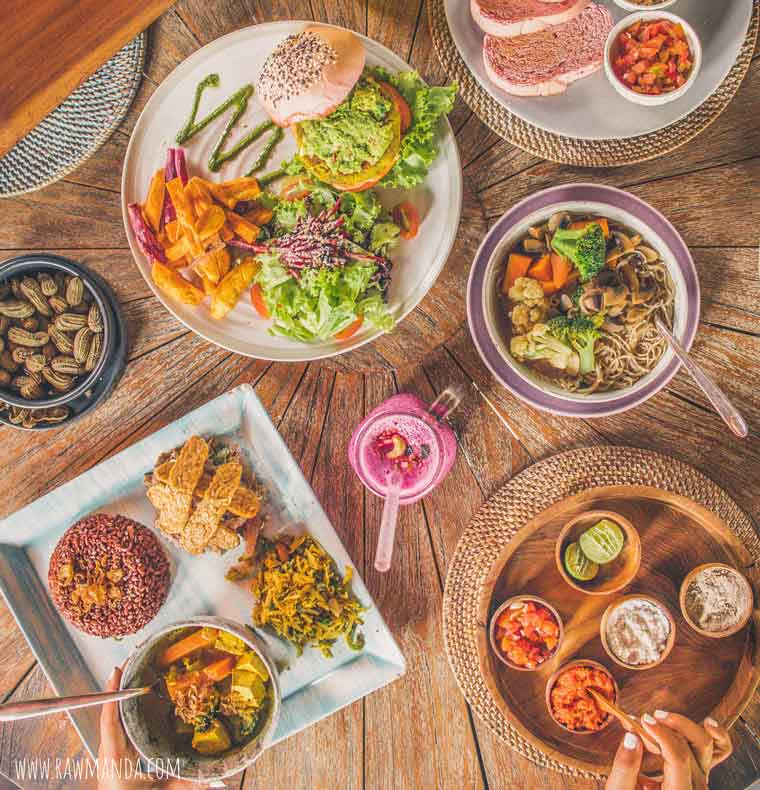EDUCATE YOURSELF
Do your research and continue learning throughout your transition. Documentaries like Cowspiracy, What The Health, Earthlings, Forks Over Knives, Game Changers and books like the 80/10/10 Diet, The China Study and How Not To Die. Inspire yourself, the more you learn about your impact on not only your health but the environment and well-being of animals you will grow more passionate about the lifestyle.
EAT ENOUGH CALORIES
Plant-based foods are lower in calories so you’re going to need to eat more than you normally would on a non-vegan diet. Think eating in abundance. Eating until you are completely satisfied and full. Eat healthy, nourishing whole foods. Consume enough fruits/veggies and avoid unhealthy processed foods with empty calories. Use websites and apps such as chronometer or myfitnesspal to help you track calories and nutrients.
REMOVE & DONATE NON-VEGAN FOOD
Remove all non-vegan food from your house if you live alone. If you live with someone, designate your own cabinet in the kitchen to avoid temptation. Out of sight, out of mind.
SUPPORT SYSTEM & COMMUNITY
When I first decided to go plant-based, I was the only vegan I knew out of my friends and family. So you can imagine how confused I felt at first trying to navigate this new lifestyle. As helpful as Google is when you’re trying to research something new, there’s nothing quite like having a conversation with people who have their own experiences that you can learn from. I went to Instagram, Facebook and YouTube to connect with the vegan community online. I started finding influencers in this space to follow and asked questions about veganism in the comments section. It was encouraging to see all of the responses, so many people wanted to share their journey and personal tips on going vegan. I recommend using meetup.com to find likeminded people and vegan events in your area.
It’s so important to surround yourself with individuals who support what you’re doing because you choose to do it. Your friends and family don’t have to go vegan too, but see if they’re interested in learning about plant-based cooking or trying out a new vegan restaurant with you.
APPS
Search for vegan restaurants in the area or plan ahead for a trip and see what vegan or vegan-friendly restaurants/stores there are in certain locations. Download apps on your phone to get recommendations from users on where to eat and find places that have vegan options on their menus.
- Happy Cow – An online service that lists sources of vegan, vegetarian and healthy food. Access is free to users, who can also provide content. From the original restaurant listings and reviews, HappyCow has expanded to feature information on recipes, travel, health, and other topics.
- Four Square – App users “check in” when they are at restaurants or other public places and leave helpful comments.
These location based directories of vegan, vegetarian and vegan-friendly spots will help you be prepared ahead of time! Browse through user reviews and get the best recommendations on what to order.
BE KIND & PATIENT WITH YOURSELF
Some people will go vegan overnight. But a slow transition may be more sustainable for you. Challenge yourself to Meatless Monday or eating one vegan meal a day. Look for the vegan version of your favorite recipe. You will accidentally eat something that’s not vegan, there’s a learning curve as there is with any lifestyle change. I’ve had plenty of moments where I ate something and later found out it wasn’t vegan. I pay closer attention to the foods I put in my body now and learn from those experiences.
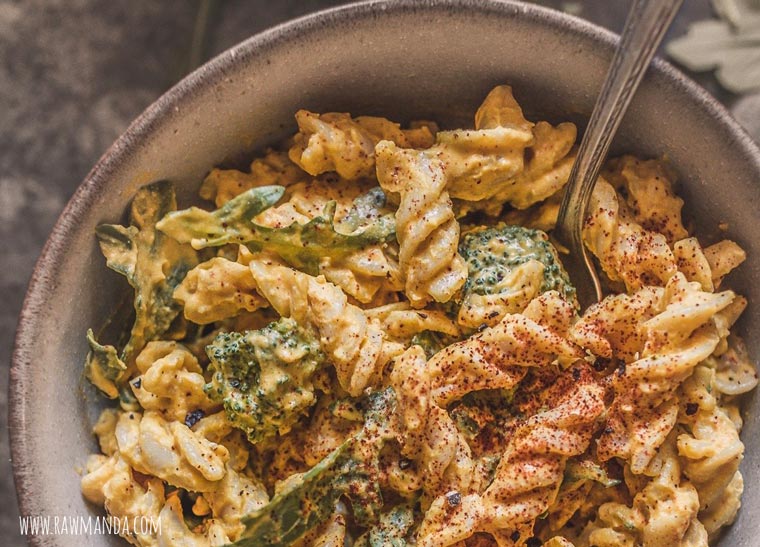
Pictured Recipe: Creamy Vegan Mac & Cheese
REMIND YOURSELF WHY
Finally, remind yourself why you went vegan and identify the benefits you’ve experienced. Whether it’s for your health, the environment or to save the animals, remind yourself of your reasons. When you’re feeling This compassionate way of living rewards us in so many ways. I know that I have personally grown so much as a person from the decision to go vegan.
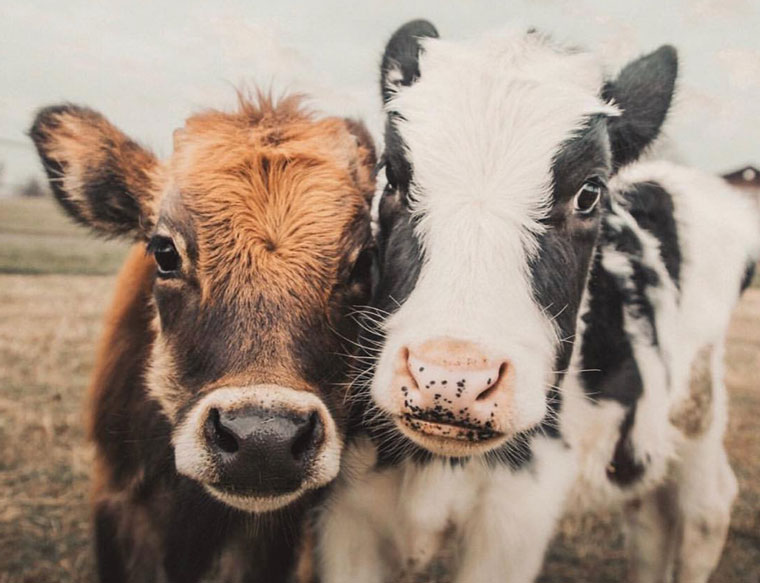
Photo Source: Sammantha Fisher
